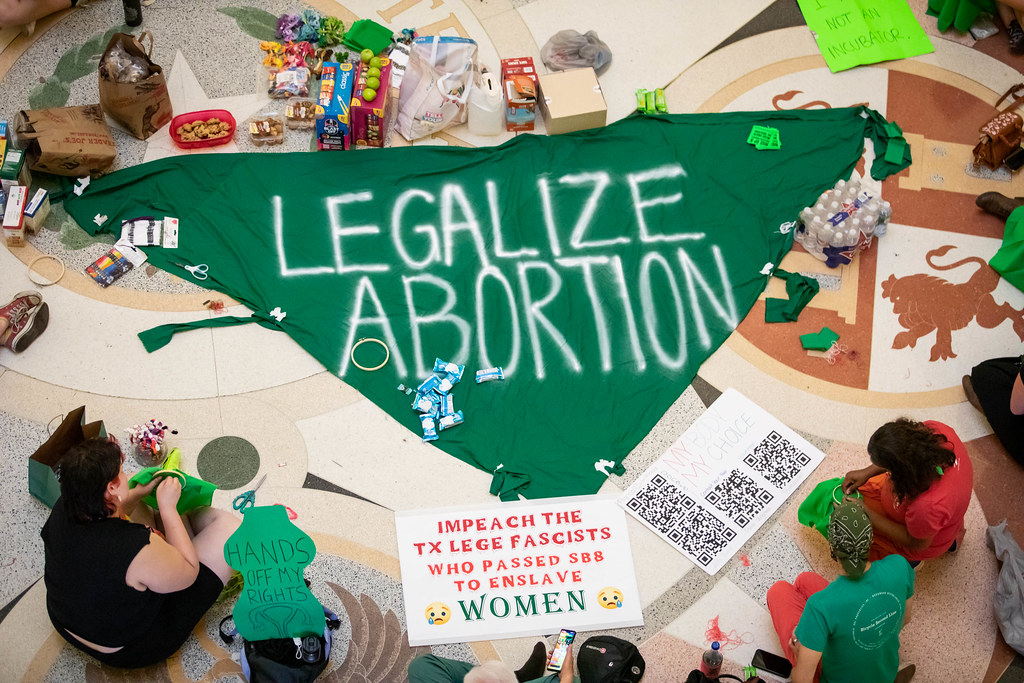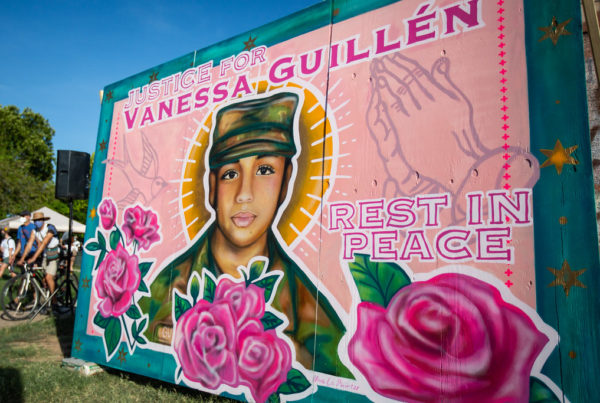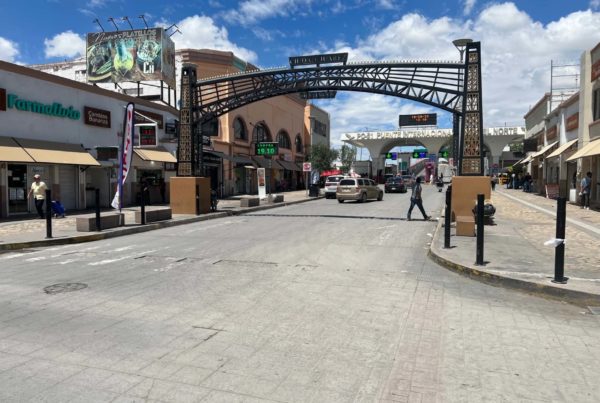As Texas and other states in the U.S. move to restrict abortion access in a post-Roe era, across the border, Mexico is moving in the opposite direction.
Last September, Mexico’s Supreme Court declared it was unconstitutional for the state of Coahuila to criminalize abortion. The ruling sent shockwaves across the predominantly Catholic country and was viewed as a major win for abortion rights activists in Mexico.
“What the court said was that it is unconstitutional to criminalize women who decided freely to have an abortion in the early stages of pregnancy, and also to criminalize anyone – that could be medical providers or people who support them,” said Maria Antonieta, director of IPAS in Central America and Mexico, a global reproductive justice organization that promotes access to safe abortions.
The ruling set a legal precedent that would force other judges in Mexico to expand abortion access across the country.
“From that moment, what we are seeing and what we are expecting is that no women will be put in jail because every judge in the country has to rule considering the decision of the Supreme Court,” Antonieta said.
While the court’s decision changed some things overnight, abortion rights activists see this as the result of at least three decades of work. The movement first found success in 2007 when Mexico City legalized abortion up until 12 weeks of pregnancy.
But Veronica Cruz, one of the founders of the Mexican abortion network Las Libres, says it’s taken a long time to change perceptions and attutudes.
“For more than three decades, we’ve been fighting for the legalization, decriminalization and destigmatization of abortion,” Cruz said. “But I think the most significant revolution has been in the last two decades, when we took to the streets to claim our right to abortion.”
Although many of Mexico’s 32 states still have strict laws that criminalize abortion, nine states have decriminalized it up until 12 weeks and at least 15 others are considering bills to do the same. The Mexican Supreme Court’s decision stops short of legalizing abortion, but access to safe abortions are available depending on the state.
“The only exception that is legal in the entire country is rape. So, when the pregnancy is due to rape, women have the right to interrupt that pregnancy,” Antonieta said.
Because abortion is viewed though a healthcare lens, people who qualify can receive a government-funded abortion free of cost, regardless of citizenship.
“These services are provided for free by the government. There is no request for a police filing,” Antonieta said. “And in terms of having the permission of your parents or your spouse, there is no spouse consent needed and there is no parent consent needed for children, for girls, 12 years old and older.”
The Mexican Supreme Court ruling happened just days after Texas enacted its six-week ban on abortion. Since it directly affected Coahuila, which borders Texas, the decision created an opportunity for Texans seeking an abortion.
“I would like people [in the U.S.] to know that their sister networks are available to help them, that they have good neighbors here in Mexico,” said Vanessa Jimenez, a volunteer with another abortion network, Necesito Abortar.
Antonieta and Cruz say that’s exactly what has happened.
“More or less from January to before the Friday of the Court’s decision, an average of 10 women (per day) came to our networks asking for help from the United States,” Cruz said. “Now, from that Friday to here, there are an average of 100 women a day.”
Medication abortion is by far the most common abortion method in both Mexico and the U.S. In Mexico, medication commonly used in self-managed abortions are cheap, do not require a perscription and can be purchased at almost any pharmacy.
Antonieta said there is already movement at the border of Americans coming to Mexico for health services and supplies. But now, many of the people coming to Mexico are there to buy Mifepristone and Misoprostol, which are the two drugs commonly used to induce an abortion. Las Libres goes even further.
“Las Libres has always guaranteed FREE, safe abortions with medication. And this is what we’re doing for people in the U.S., it’s totally free,” Cruz said.
» MORE: How Mexican activists are providing Texans with medication abortions
The Mexican Supreme Court ruling has given organizations like Las Libres and Necesito Abortar a strong legal base they didn’t have before. They share information about medication abortion and guide people seeking surgical abortion based on guidance from the World Health Organization.
“This isn’t information we’ve created; this is information from the WHO, and the only thing we’re doing is sharing protocols they’ve established for having an abortion,” Jimenez said.
It’s illegal to access abortion pills in Texas, and the state has banned the mailing of abortion pills. But Southern Methodist University Health Law professor Seema Mohapatra told the Texas Standard it’s unclear how Texas will be able to enforce the ban when pills are received from other states or from Mexico.
“The practical effects of how that would happen are unclear, but there is a legal haze here, and vulnerable people are really going to be the ones that suffer from this,” Mohapatra said.
Meanwhile, the Biden administration has considered declaring a public health emergency to protect access to the abortion pill. Antonieta says she hopes to see more options like that for people both in the U.S. and in Mexico and Central America.
“I think that what we need to understand is that abortion is health care. It’s a service that millions of women need every year,” Antonieta said. “And it shouldn’t be dangerous for women to get this service. It shouldn’t be complicated.”
These organizations are working to make sure all 32 Mexican states guarantee the right to an abortion as recognized by the federal government. But abortion activists say the current patchwork at least provides some opportunity for people in Texas and the rest of the U.S. to have access to safe abortion services.
















